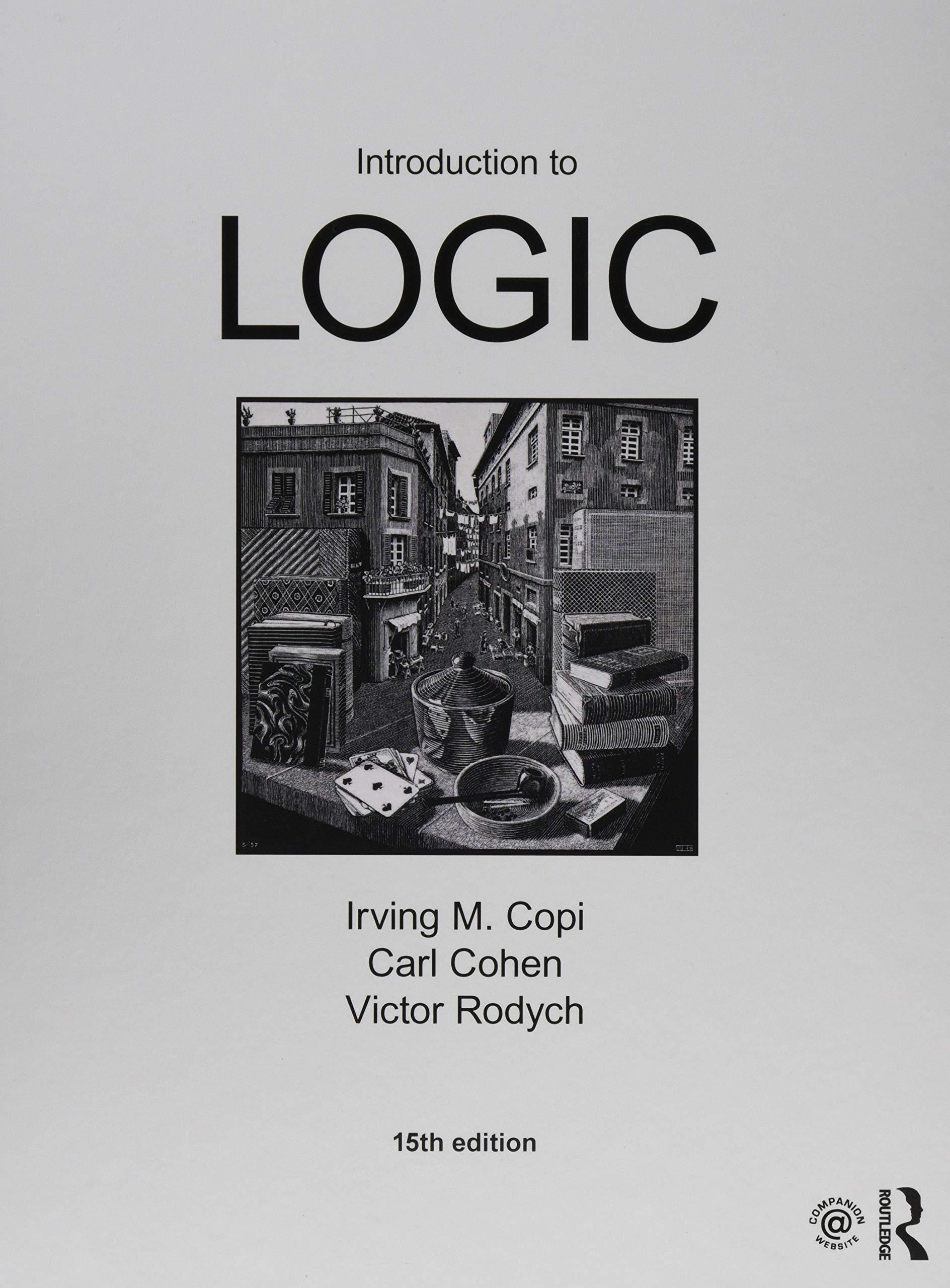Some of the following passages contain explanations, some contain arguments, and some may be interpreted as either
Question:
Some of the following passages contain explanations, some contain arguments, and some may be interpreted as either an argument or an explanation. What is your judgment about the chief function of each passage? What would have to be the case for the passage in question to be an argument? To be an explanation? Where you find an argument, identify its premises and conclusion. Where you find an explanation, indicate what is being explained and what the explanation is.
One may be subject to laws made by another, but it is impossible to bind oneself in any matter which is the subject of one’s own free exercise of will. . . . It follows of necessity that the king cannot be subject to his own laws. For this reason [royal] edicts and ordinances conclude with the formula, “for such is our good pleasure.”
Step by Step Answer:

Introduction To Logic
ISBN: 9781138500860
15th Edition
Authors: Irving M. Copi, Carl Cohen, Victor Rodych





